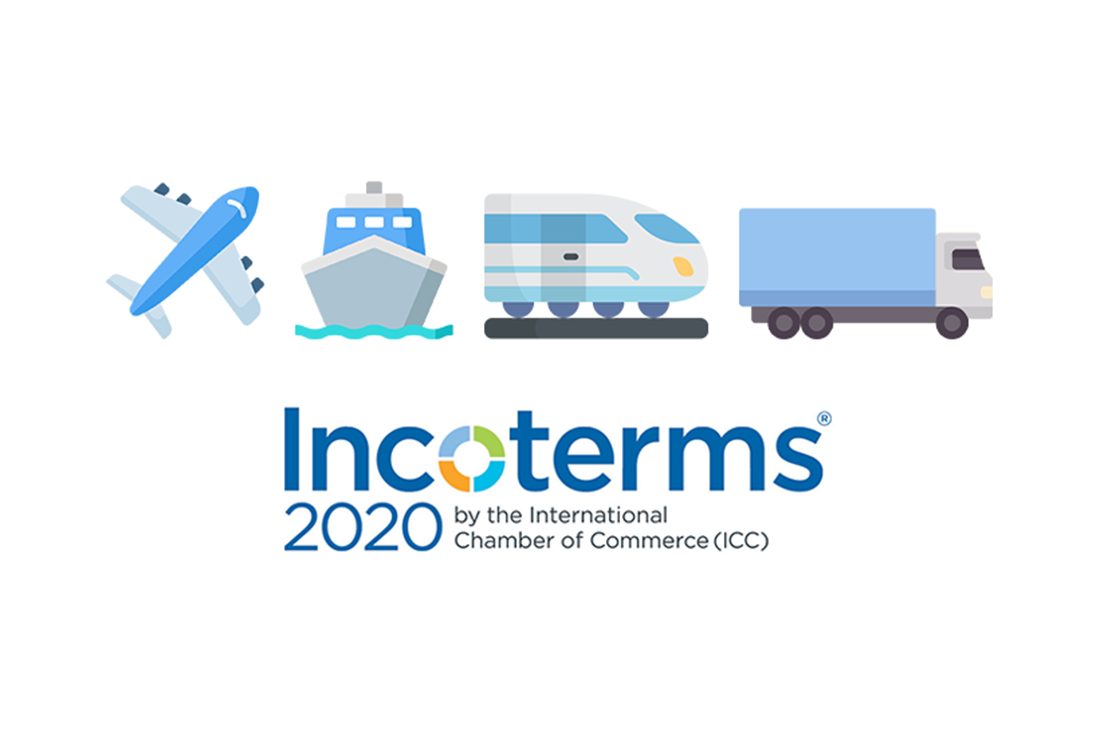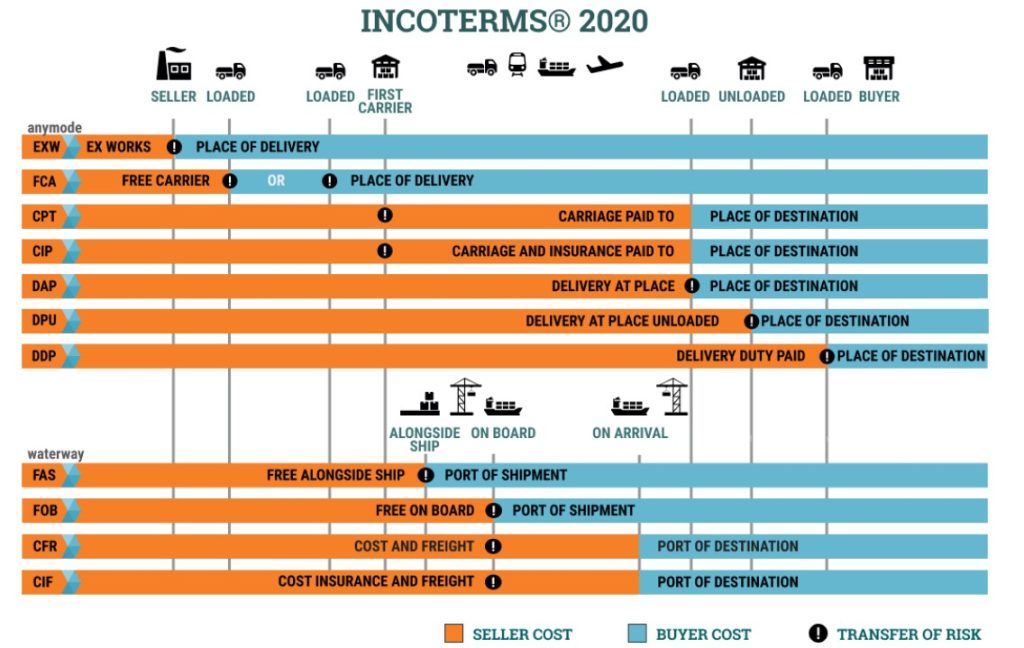INCOTERMS


Incoterms (International Commercial Terms) are essential for global trade, providing clarity on the responsibilities between buyers and sellers. The Incoterms 2020 rules, published by the International Chamber of Commerce (ICC), are the latest iteration and continue to guide international and domestic trade. Here's a breakdown of the most widely used terms:
• Responsibility: The seller makes the goods available at their premises (factory, warehouse, etc.).
• Buyer’s Duties: The buyer bears all risks and costs involved in transporting the goods from the seller’s location to the final destination, including export duties and insurance.
• Used When: The buyer has the ability to manage the transportation logistics.

• Responsibility: The seller delivers the goods to a carrier or a named place (factory, warehouse, etc.).
• Buyer’s Duties: The buyer takes responsibility for transportation from the point where the goods are handed over to the carrier, including all risks and costs.
• Used When: Flexibility is needed in the choice of delivery location, especially for containerized goods.

• Responsibility: The seller delivers the goods on board the ship at the port of shipment. Once the goods are on the vessel, the risk passes to the buyer.
• Buyer’s Duties: The buyer arranges sea freight from the port of shipment to the destination and bears the cost of transport, insurance, and duties.
• Used When: Commonly used in sea freight, especially for bulk goods.

• Responsibility: The seller pays for the cost of the goods, insurance, and freight to bring them to the destination port. However, the risk is transferred to the buyer once the goods are on board the vessel at the port of origin.
• Buyer’s Duties: The buyer bears the risk of loss/damage during transit but benefits from insurance coverage arranged by the seller.
• Used When: Sea or inland waterway transportation is required, and the buyer prefers the seller to arrange freight and insurance.

• Responsibility: Similar to CIF, but without the insurance. The seller pays for transportation costs to the destination port, but risk passes to the buyer once the goods are on board the ship.
• Buyer’s Duties: The buyer arranges insurance and handles unloading costs.
• Used When: Ideal for bulk cargo transported by sea, where the buyer is responsible for insurance.

• Responsibility: The seller delivers the goods to a named place (usually the buyer's premises) without unloading.
• Buyer’s Duties: The buyer handles the unloading at the final destination and covers import duties and local taxes.
• Used When: The seller takes on most of the responsibility, including the cost and risk, but not the unloading

• Responsibility: The seller handles everything — from export formalities, transportation, and import duties, to delivering the goods to the buyer’s location.
• Buyer’s Duties: The buyer simply receives the goods.
• Used When: Ideal for buyers who want minimal involvement in transportation and customs clearance

• EXW: Buyer bears all transportation risks from the seller's premises.
• FCA: Seller delivers to the carrier; buyer manages transportation beyond that.
• FOB: Risk transfers once the goods are on board the ship.
• CIF/CFR: Seller pays for transport to the destination, but risk transfers once goods are loaded.
• DAP/DDP: Seller delivers to the buyer's destination, with DDP covering all duties and taxes.

Choosing the right Incoterm ensures clarity in trade contracts, helping prevent disputes about responsibilities and costs. Make sure both parties understand their duties for a smoother international trade experience.
For more details on Incoterms 2020 and how they impact your global trade operations, feel free to contact us!